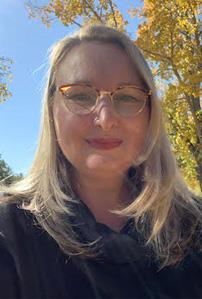ORCID Links Researchers, Their Research, and Their Institutions

eAIR had an opportunity to speak with Shawna Sadler, Engagement Manager, Outreach & Partnerships at ORCID, about connecting researchers with their work and their institutions.
How would you describe ORCID to someone unfamiliar with it? Or, what is your elevator pitch for someone unfamiliar with the service?
ORCID provides a free unique persistent iD and a record for researchers to document their research activities, which is connected to the unique iD. ORCID has issued over 10 million unique iDs to people around the world and in every discipline. With ORCID’s Member API, we connect the ORCID registry to various research-related systems around the world, such as publishers, research funding agencies, and other organizations that employ researchers, like universities. We connect these systems to enable data interoperability for member institutions so that research-related data, like citations, can be shared between systems accurately, in a timely manner, and without requiring staff to re-key the data.
Our connections with publisher and research funding agency systems are incredibly powerful. We love it when researchers tell us that it took less than an hour to automatically update their ORCID record with their new citations.
What drew you to ORCID, and what is your role there?
I’ve been working with researchers in various administrative roles in Canada, Australia, and the United States over the past fifteen years. A common thread amongst these researchers is the need to reduce administrative burden on researchers. ORCID is a clear solution to not only meet this need, but to improve data accuracy and timeliness which helps everyone who conducts assessment and reporting in the scholarly communications ecosystem.
Who benefits the most from using ORCID, and how?
Researchers benefit the most from ORCID. We provide a tool, free of charge, to collect and share their research-related data with their approved organizations. We also pre-populate forms, such as the NSF SciENcv BioSketch, for researchers by coordinating with publishers and research funding agencies to enable data in ORCID records to map to specific data to the fields in their forms. This way, researchers don’t have to enter their information but are free to edit it within the form.
How can data professionals in institutional research leverage ORCID to improve institutional effectiveness and student success?
Finding data about your researcher’s research activities can be extremely difficult. ORCID’s registry holds over 10 million records of researcher-related data, and we can work with institutions to improve the quality and quantity of data within researchers’ ORCID records so that they can be pulled on-demand by institutional research professionals to answer a range of questions, such as:
- How many publications did our researchers publish last year?
- How many grants did our researchers receive last year?
- Which of our alumni have published and received research funding? ORCID records also enable you to call data about your alumni which is always a difficult group to track. Finding alumni who have published and received research funding can be valuable data to an institution.
What future plans are there to expand collaboration between ORCID and postsecondary institutions?
We are about to launch a new tool called Affiliation Manager so that administrative staff can write employment and education data to ORCID records at the institution. This way, administrative staff can reduce administrative burden for researchers and help populate their ORCID records for them. This will also make it easier for professionals in institutional research to pull fulsome data about their researchers.
What’s the funniest moment you’ve experienced during a video conference?
During one of the COVID lockdowns, my two boys were home from school. I was meeting with a top-tier university when they ran into my office to tell me about an exciting dance and costume update on Fortnite (a video game). The other people on the call were very kind and appreciated the Fortnite update, but I was a little red with embarrassment.
